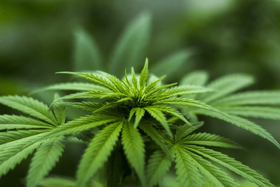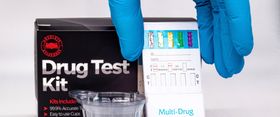How to Use Reishi Mushrooms for Sleep
Updated September 20, 2023.

Reishi mushroom (also known as Lingzhi or Ganoderma lucidum) is sometimes referred to as the Mushroom of Immortality due to its long list of health benefits. One of these claimed benefits is that red Reishi mushrooms can be used as an aid to improve sleep quality, but is there any truth to this?
This article looks at the science behind how Reishi mushrooms can help you sleep, the best ways and products to do so, and some other mushrooms that offer similar benefits.
Do Reishi Mushrooms Help With Sleep?
For ages, Chinese therapeutic traditions have esteemed Reishi fungi, categorising them as 'shen tonics' instrumental in harmonising bodily functions, placating the psyche, and fostering restful slumber. Contemporary scientific inquiry corroborates the notion that Reishi indeed possesses sleep-promoting virtues.
Several factors contribute to sleep quality, and this adaptogenic mushroom may improve a few of them.
How Reishi Directly Affects Sleep
REM (rapid eye movement) sleep is essential to health and longevity as this is the phase of sleep that stimulates the areas of the brain associated with learning and memory. In fact, science has shown that sleep deprivation can lead to premature death.
Research into the direct effects of Reishi on sleep has found that it increases the time of non-REM sleep and the quality of REM sleep. Although scientists aren't entirely sure how it does this, the evidence suggests strong efficacy in using Reishi for sleep. That being said, it's important to understand that Reishi will not make you feel sleepy in the way that pharmaceutical sedatives and sleeping pills will.
How Reishi Indirectly Improves Sleep Quality
Aside from the direct effect on sleep, Reishi may also combat insomnia by reducing stress, anxiety, and depression. A study by the US National Library of Medicine tested the benefits of Reishi mushroom extracts on the well-being and perceived quality of life in cancer patients. Although the study wasn't looking directly at mood disorders, the recipients reported improved overall quality of life due to reductions in anxiety and depression. It stands to reason that a general improvement to mood will likely yield improvements to sleep routine and quality.
When to Take Reishi for Sleep
One of the most popular questions about functional mushrooms is when you should take them to yield the best results. Unfortunately, it doesn't quite work in the way you might expect. The benefits of Reishi mushrooms don't appear shortly after consumption in the way that they might with pharmaceutical drugs. The benefits take time to accumulate as your body adapts to the biological compounds.
What matters more than the time of day that you take them is the frequency. Since the benefits are not immediate, it's best that you take them every day. Whether you're making Reishi mushroom tea before bed or mixing some Reishi powder into your morning coffee, consistency is the essential factor.
Reishi Mushroom Products for Sleep
Similar to the timing, there is no best way to consume Reishi mushrooms. However, unlike some other functional mushrooms, they aren't suitable additions to meal recipes due to their woody texture and taste. As such, you'll likely find all Reishi mushroom products to exist in the form of powders, tinctures, supplement capsules, or dried and intended for tea brewing.
If you're looking for specific products to help you sleep, try our custom products that combine the power of functional mushrooms with CBD oil for maximum benefit:
- Our Beauty Sleep Drops include soothing chamomile extracts
- Our Relax Drops for stress relief include soothing chamomile and lavender extracts
Reishi Mushroom Dosage for Sleep
Despite the growing research into the different benefits of Reishi mushrooms, no studies have looked at how the benefits change depending on dosage, nor have they specifically studied the side effects. Unfortunately, all we can do is extrapolate from the common doses used in successful scientific trials.
With that in mind, traditional practitioners recommend the following ranges:
- Up to 1g/daily for general health
- Up to 5g/daily for chronic illness
- Up to 12g/daily for serious illness
Although the range is quite large, the mushrooms appear relatively safe, even at higher doses. Additionally, most supplements and extracts will come with recommended doses listed on the packaging, so long as you are purchasing from reputable sources.
Other Mushrooms That May Be Good for Sleep
Reishi is just one of the many functional mushrooms that seem to benefit sleep. If you're looking to combine a few, the other functional mushrooms we use in our stress relief and sleep support products are:
- Lion's Mane
-
Shiitake - Turkey Tail
- Cordyceps militaris
- Enokitake
- Shimeji
All of these mushrooms are capable of helping individuals who have difficulty sleeping. While there is no "best mushroom for sleep," all of them seem to exhibit some degree of benefit in this regard.
If you're feeling apprehensive, weighing up the benefits and side effects of Reishi and other functional mushrooms should reveal that the long list of advantages far outweighs the reportedly low risk. If you are still unsure, it's best to consult with a medical practitioner to receive a more personalised recommendation.
FAQs
How does Reishi help sleep?
Reishi mushrooms contain compounds known as triterpenes, which have a calming effect on the nervous system. This adaptogenic fungus aids in stress reduction and cortisol regulation, thereby promoting a tranquil state conducive to sleep. It's often used to improve sleep quality and duration. Always consult a healthcare provider for personalised advice.
How much Reishi should you take for sleep?
The dosage of reishi mushroom for sleep can vary between individuals and formulations. Common recommendations often suggest consuming 1 to 1.5 grams of reishi extract daily, usually taken an hour before bedtime. However, it's essential to consult a healthcare provider for a personalised dosage plan, especially if you're taking other medications or have underlying health conditions.
What time should I take Reishi for sleep?
For optimising sleep quality, it's generally advised to take reishi approximately one hour before you intend to go to bed. This allows time for its calming effects to influence your nervous system. However, individual responses can vary, so it's crucial to consult a healthcare provider for tailored advice.
How long does it take for Reishi to work for sleep?
The time required for reishi to manifest its sleep-enhancing effects can differ among individuals. Generally, it may take a few days to a couple of weeks to notice a substantial improvement in sleep quality. For some, incremental changes may become evident within a night or two. Consult a healthcare provider for personalised guidance.









